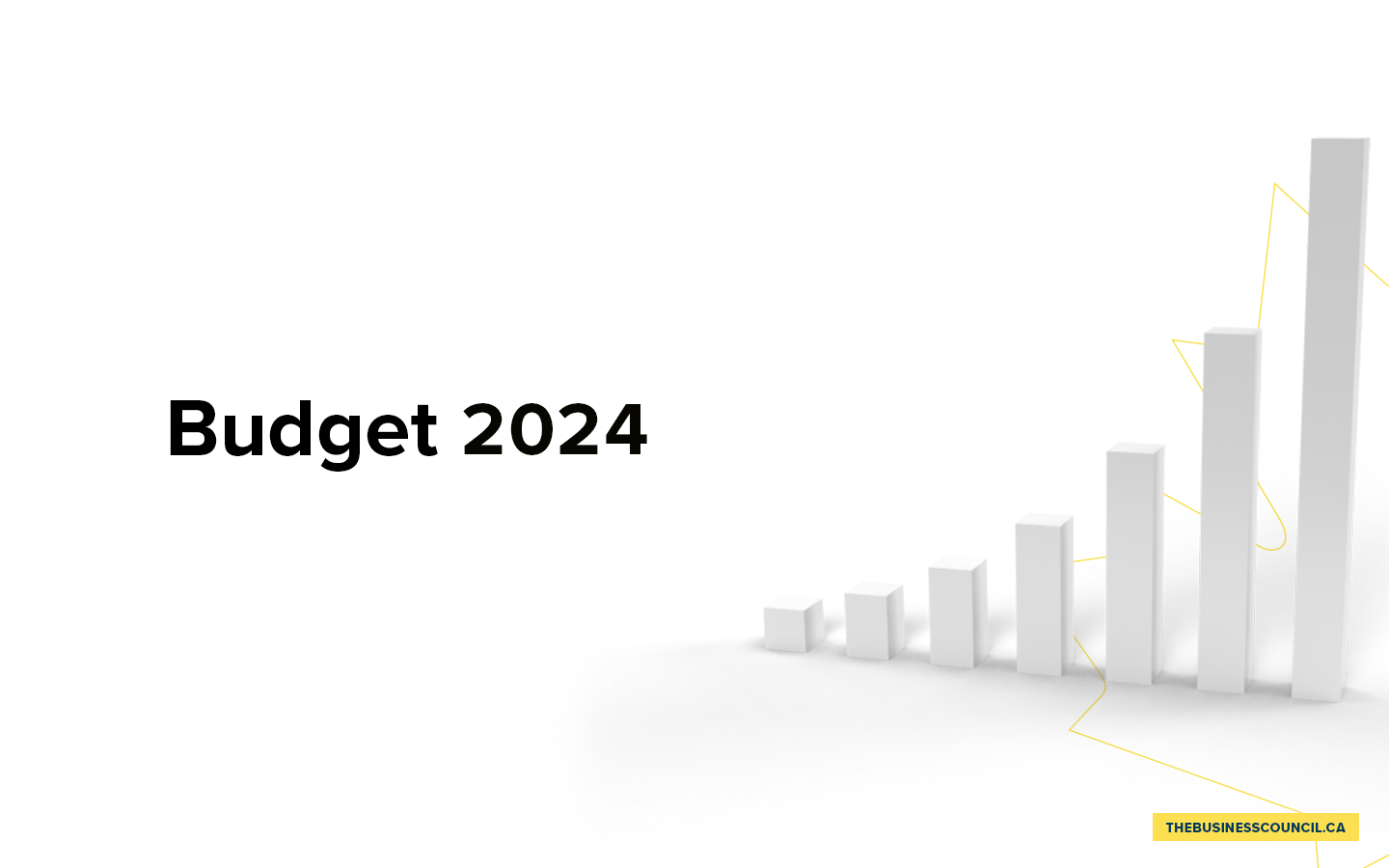April 16 budget must prioritize growth
With GDP per-capita declining for a sixth straight quarter and the global economy facing a precarious year ahead, Canada’s leading employers are calling for a federal budget that cultivates the conditions for economic growth.
“The government has an opportunity to implement growth policies, including many of its own previous commitments, without putting an unfair financial burden on future generations,” said Goldy Hyder, President and CEO of the Business Council of Canada (BCC). “This approach will ensure the long-term viability of our cherished social programs and living standards, while allowing Canada to compete and succeed on the world stage.”
The BCC outlines two important areas where the government can instill policy certainty and unlock investment:
Fiscal sustainability
- As a top priority, the government should avoid introducing net new spending to help ease prices and rates for Canadians. As Bank of Canada Governor Tiff Macklem cautioned in his testimony last month to the House of Commons Finance Committee, large spending increases could “get in the way of getting inflation back down to target in the timeline we’ve laid out.”
- With the size of the federal public service growing 37.9 per cent since 2016, it is time for a comprehensive program review. A serious assessment of current government spending should lead to real savings and allow the government to reallocate money to core priorities including national defence and economic security, the energy transition, research and development, and climate adaptation.
- As stated in a recent BCC report, since 2020 “the federal government has never met a fiscal target it imposed on itself.” While we note the new “guideposts” laid out in the 2023 Fall Economic Statement, the BCC continues to call for a meaningful fiscal anchor that limits debt servicing costs to a maximum of 10 per cent of revenue going forward. This anchor will preserve the government’s capacity to fund social programs Canadians rely on and not put an excessive and unfair fiscal burden on future generations.
Regulatory reform
- The government must reevaluate ill-advised regulations, including the proposed cap on oil and gas emissions, which would exacerbate Canada’s inflation and affordability problems by applying a broad-based economic shock that will reduce tax revenues and add pressure to the federal deficit. Rather, the government should focus on providing policy certainty and the incentives necessary to accelerate investment. Without these elements, Canada will struggle to attract the capital it needs to compete in a low-carbon economy.
- The government itself has lamented Canada’s slow and laborious permitting process, but fixing it is within its own jurisdiction and does not require new spending. That’s why we urge the government to honour its unfulfilled promise in Budget 2023 to deliver a concrete plan to improve the efficiency of the impact assessment and permitting processes for major projects. This would send a signal that Canada is ready to move with the speed and ambition needed to meet our net-zero goals.
- As noted by the First Nations Major Projects Coalition, reducing project risk requires economic reconciliation and partnerships, including equity arrangements, with Indigenous Peoples. To eliminate barriers and ensure access to competitive capital, we expect the government to fulfill its commitment to stand up a national Indigenous loan guarantee program, one that is open to projects from all industries and sectors.
Latest Press Releases
Business Council of Canada and Federation of Korean Industries Strengthen Economic Cooperation
October 31, 2025










